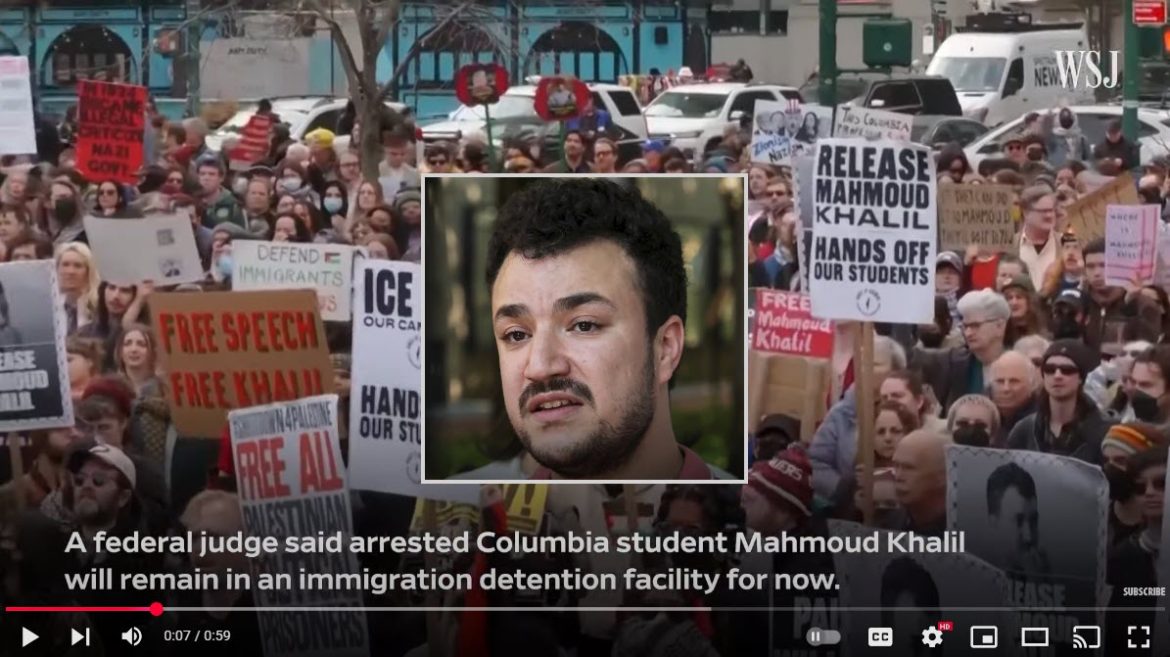Mahmoud Khalil, a prominent Palestinian activist and recent graduate of Columbia University’s School of International and Public Affairs, continues to be detained by U.S. Immigration and Customs Enforcement (ICE) in Louisiana following his arrest on March 8, 2025. Khalil, a legal permanent resident of the United States, was apprehended at his university-owned apartment in Manhattan under allegations of supporting Hamas, a designated terrorist organization.
Khalil’s arrest has been characterized by the Department of Homeland Security as part of President Donald Trump’s executive orders aimed at prohibiting antisemitism. The DHS alleges that Khalil led activities aligned with Hamas, though no formal charges have been filed against him. His attorney, Amy Greer, reported that ICE agents initially intended to revoke his student visa but proceeded to revoke his green card upon learning of his permanent resident status.
Following his arrest, Khalil was transferred to the LaSalle Detention Center in Louisiana. His wife, a U.S. citizen who is eight months pregnant, was present during the arrest and was reportedly threatened with detention herself. Efforts by his family to ascertain his exact whereabouts have been met with challenges, exacerbated by multiple transfers between facilities.
On March 12, 2025, U.S. District Judge Jesse M. Furman presided over a procedural hearing in Manhattan to address Khalil’s detention. Judge Furman ruled that Khalil would remain in ICE custody in Louisiana while further legal arguments are considered. Khalil did not attend the hearing, either in person or virtually. His legal team plans to file a new petition seeking his release, while federal prosecutors are advocating for the case to be moved out of New York.
Secretary of State Marco Rubio has emphasized that the case centers on immigration status rather than First Amendment rights. Rubio stated that “no one has a right” to a student visa or a green card, underscoring the administration’s position that Khalil’s alleged support for Hamas justifies the revocation of his permanent resident status.
Khalil’s detention has sparked widespread protests and debates concerning free speech and civil liberties. Demonstrations have erupted in New York and other cities, with supporters arguing that his arrest constitutes retaliation for his pro-Palestinian activism, which they assert is protected under the First Amendment. Civil rights organizations, including the American Civil Liberties Union, have condemned the arrest as an infringement on free speech.
Conversely, some Jewish organizations have supported the detention, viewing it as a necessary stance against antisemitism. This divergence in perspectives highlights the complex and contentious nature of the case, reflecting broader societal debates on national security, free expression, and immigration policies.
As legal proceedings continue, the court will deliberate on the legitimacy of Khalil’s detention and the potential implications for free speech rights. The outcome of this case may set a significant precedent regarding the balance between national security concerns and constitutional protections for lawful permanent residents engaging in political activism.



